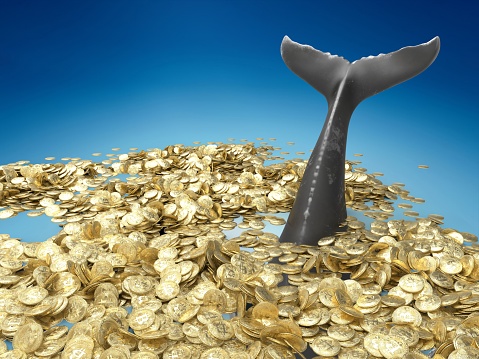
South Korea’s top monetary regulator – the Financial Service Commission (FSC) – thinks cryptocurrencies and stablecoins could facilitate money-laundering activities.
As such, it will reportedly closely monitor the actions of the country’s largest crypto holders (those who own over $70,000 worth of digital assets).
- According to a local coverage, the Financial Intelligence Unit (a division of the FSC) will oversee the transactions of South Korea’s crypto whales.
- The regulator argued that digital currencies are highly susceptible to money laundering procedures, which is why it targeted people possessing over 100 million won (around $70,000) worth of crypto.
“The greater the proportion of single-listed virtual assets and stablecoins in virtual asset operators, the higher the risk of money laundering,” the FSC maintained.
- The main focus of the monitoring will be on stablecoins. The watchdog outlined that such assets have become increasingly popular among broad society, and “they are more likely to be used as a means of crime.”
- In addition, the FIU will keep an eye on consumers depositing considerable amounts of digital assets, hinting that some of those transactions could violate anti-money laundering laws:
“Based on the sum of virtual assets owned by each customer multiplied by the closing price of the virtual asset at the end of the previous quarter, it is necessary to monitor the size and fluctuations of assets.”
- Nearly a month ago, South Korean law enforcement agents targeted tax evaders, too. They confiscated around $180 million in cryptocurrencies from local individuals and entities that bypassed taxation rules.
- The notorious Co-Founder of Terra – Do Kwon – also had to cope with similar issues. Prosecutors alleged earlier this summer that he was transferring business gains to other countries to avoid paying taxes in his homeland.
The officials further accused him of gifting assets to family members as a way of tax avoidance, and they supposedly used the funds to buy apartments.
Dimitar Dzhondzhorov(2022.10.24)Monitoring Crypto Whales: Korean Regulators With New Legislation”
retrieved from https://cryptopotato.com/monitoring-crypto-whales-korean-regulators-with-new-legislation-report/






